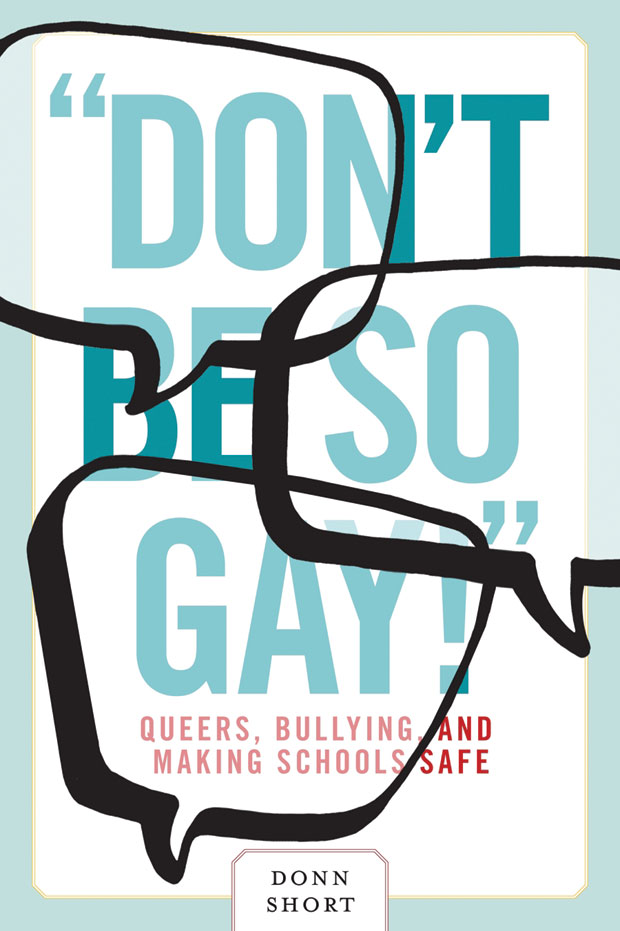 Book on bullying values kids’ input
Book on bullying values kids’ input
Schools have been concerned with bullying for decades, though recently, sexuality has entered the conversation. Of all the anti-bullying programs that help ensure the safety of gay teens,
Donn Short, in “Don’t Be So Gay!,” says Toronto has one of the best.
But how good is it? For three months, Short interviewed gay students, advocates and teens who “did not identify as queer but who were, nonetheless, subject to homophobic harassment by their peers” to find out. Subjects were from several Toronto schools; some were teachers.
Many teachers didn’t think the policies were working. Students, Short notes, still used negative epithets, and at least one teacher spent considerable time scolding those who did. He was also told that teachers were often “surrounded by homophobic colleagues.”
Interestingly, though the policies were meant to ensure safety of LGBTQ students, the students weren’t impressed. They were often more familiar with safe-school policies than most other students and knew when something wasn’t working. Many had experienced homophobia from teachers. One young man, who wasn’t gay but was bullied as if he was, even sued.
Overall, queer students strongly suggested that anti-bullying policies would work better if administrators asked the students they’re trying to protect where flaws are in the system of protection. They also believed that bullying would stop if the entire culture were changed, along with attitudes of homosexuality and the ubiquitousness of heteronormativity. “It’s too late for my generation,” says one teen, “We need to be working on the kids in kindergarten.”
There’s a lot of good in “Don’t Be So Gay!” — and a lot of otherwise. First, the otherwise: though Short mentions anti-bullying policies in other countries, his focus is on a few Toronto schools; it doesn’t help that he wanders off-topic often, into racial issues rather than the subject at hand. Casual readers may find the info too academic.
To the good, Short spent considerable time with the teens, allowing him to get unabashed answers. That kind of honesty, and the well-considered thoughts from gay teens, makes it work.
This is by no means a front-of-the-fireplace book. It’s going to take some digging to get the info you’ll need from it. But if you’re concerned about what’s going on with your child at school, “Don’t Be So Gay!” might spark some talking.
— Terri Schlichenmeyer
This article appeared in the Dallas Voice print edition March 21, 2014.
